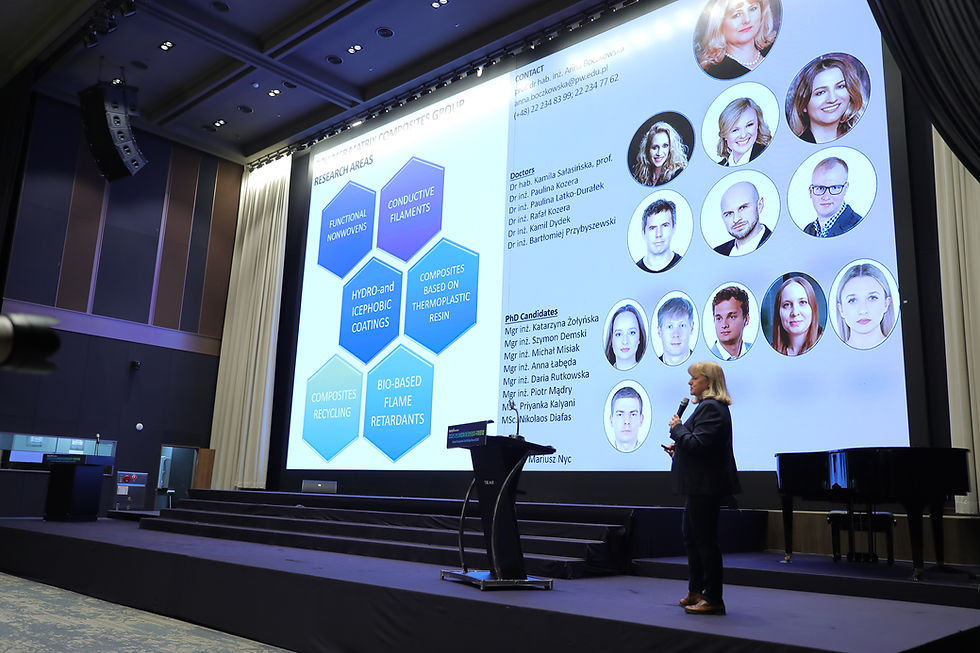Vital milestone: First Consultative Meeting with the Advisory Board
- Anna Zmiievska
- Apr 4, 2024
- 2 min read
March 11, 2024, marked a milestone for the COMP-ECO project as we convened the first consultative meeting with our Scientific and Industrial Advisory Board (SIAB). SIAB’s role in the project is to define questions by providing an end-user perspective on the research activities performed in the project on multifunctional composites and smart structures.
We express our gratitude to the SIAB members for their contributions and attendance at the meeting:
Professor Vassilis Kostopoulos, Director of Applied Mechanics and Vibrations Laboratory, Department of Mechanical Engineering & Aeronautics, University of Patras.
Dr. ir. Ferrie W.J. van Hattum, Lector for Lightweight Construction and Professor in Lightweight Structures at the Thermo Plastic Composites Application Centre (TPAC), the Netherlands.
Tomasz Gałaczyński, Ph.D. Eng., Lockheed Martin Fellow and Development Projects Office Manager at Polskie Zakłady Lotnicze Sp. z o.o., a Lockheed Martin Company.
Andrzej Czulak, Ph.D. Eng., Leader of the Polish Cluster of Composite Technologies.
The core of the meeting centred around the technical presentations of the results achieved so far in the project research programme:
Introduction to research work under TASK 1 and TASK 2 (Presented by Dr. Michał Dziendzikowski, Air Force Institute of Technology)
TASK 1 - CNT-doped filaments as strain gauges (Presented by Dr. Georgios Tzortzinis, Dresden University of Technology)
TASK 2 - Conductive CNT-doped strips as heaters for thermography (Presented by Dr. Kamil Dydek, Warsaw University of Technology)
The presentations were followed by an extensive discussion involving the project research team and the SIAB members. All SIAB members noted the high level of the performed research work and highlighted that the presented results are very promising and worth future exploration.
Recommendations from the SIAB were twofold, focusing on both the horizon of long-term research and the immediate next steps:
Long-term Vision:
consideration of LCA and recycling aspects to bolster sustainability
comprehensive cost analysis to enhance the economic viability of new concepts
adjustment to different innovative manufacturing techniques currently used in the aerospace and automotive industries to ensure broader applicability
Immediate Actionables:
examining materials properties change over an extended period, including fatigue tests
adaptation of sensors to the use of curved surfaces
validation of the performance of the sensors for thermoplastics
testing samples with sensors placed on the surface
The guidance provided by the SIAB will shape the trajectory of the COMP-ECO project research component, ensuring that it both advances scientific knowledge and meets the practical needs of industry and society. The long-term recommendations will be used in developing the collaboration roadmaps for the industrial implementation of multifunctional composites and smart structures.




Comments